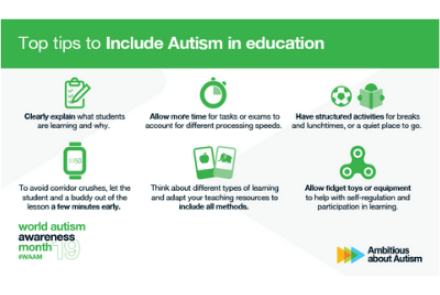A guide to requesting a place at a specialist school or college
Almost all children in specialist placements need to have an Education, Health and Care plan (EHC plan). This is a document which details the educational, health and social care needs of a child or young person and sets out the provision required to meet those needs. Only your local authority can issue an EHC plan. For more information about obtaining a plan you can visit the IPSEA website, which provides a wealth of parent-friendly information on special educational needs.
Requesting a place
The Children and Families Act 2014 says that you will be able to request a particular school or college when you receive a draft EHC plan or a notice amending an existing EHC plan. At this point you have a right to request any of the following types of school or college:
- A maintained school or nursery (mainstream or special)
- An academy (mainstream or special)
- An institution in the further education sector (e.g. a college)
- A non-maintained special school (TreeHouse School is a non-maintained special school)
- A type of independent school or college which is known as a section 41 placement (Ambitious College is a section 41 College)
Your local authority is required to name your choice of placement if it is a type listed above unless one of the following reasons apply:
- The setting is unsuitable for the age, ability, aptitude or special educational needs (SEN) of the child or young person; or
- The attendance of the child or young person would be incompatible with the provision of efficient education for others; or
- The attendance of the child or young person would be incompatible with the efficient use of resources.
It is for your local authority to prove one of these conditions apply. If they use another reason to refuse your choice, for example, their policy is not to place children or young people ‘out of borough’, then they are not applying the law correctly.
Tips on the admissions process
If you are asked by your local authority to give the name of your choice of preferred placement then as long as it is a type of placement listed above, they must consult with that provision. The law does not require that you name more than one choice of placement, unless you wish to do so. Neither are you required to make a choice of a mainstream school or college alongside any other preference. If you are asked to complete a form or advised you are being considered as part of the general admissions procedure, then please seek advice (see further below for organisations to contact).
Seeking a place at TreeHouse School or Ambitious College
If, after attending one of TreeHouse School or Ambitious College open days, you want to access a place, the first step is to contact our admissions team. For those who are asking their local authority to fund a place, the authority will need to consult with us. However if your place is funded, our specialist team will first review your child or young person’s EHC plan. Our staff may come and meet with your son or daughter and assess whether we can offer them the right support. If we can meet their special educational needs and a place is available at that time, then we will formally offer a place. We will send an offer letter to you and your local authority.
If you are seeking a place at TreeHouse School or Ambitious College, Ambitious about Autism’s experienced Admissions Team can explain our processes. Our team is also able to signpost where you can seek further advice and support in relation to appealing to the SEND Tribunal. Email admissions@ambitiousaboutautism.org.uk or call the Admissions Team on 020 8815 5428.
Challenging a local authority decision
If you receive a final EHC plan which names a different school or college then you have the right to seek mediation with your local authority or appeal to the First-tier Tribunal (Special Educational Needs and Disability – SEND – Tribunal). The SEND Tribunal is independent of the local authority. It does not cost any money to appeal. While some parents seek the advice and support of a legal representative, many represent themselves.
If your local authority names a placement that you are not happy with, the starting point to challenge this decision is understanding why the authority has refused your preferred school or college. If the authority has said your choice is ‘incompatible with the efficient use of resources’, they will have had to name an alternative placement that can meet all of your son or daughter’s needs. Look carefully at the EHC plan and visit the local authority’s preferred school or college. Try to work out whether the placement really can meet your child or young person’s needs. If you demonstrate that it cannot, then the argument that your preferred choice is too expensive, falls by the wayside. Look also at the EHC plan, does it include all of your child or young person’s special educational needs and provision? Is it properly detailed and is the provision properly specified? If not, you may need to challenge the contents of the plan as well as the placement.
Finally, a word about time scales
When your child or young person is moving to another stage of education, for example from primary to secondary school, the local authority must amend an EHC plan by 15 February in the year of the ‘phase transfer’ or, in the case of a transition from secondary to post-16, by 31 March in the year of the transfer. It is really important local authorities meet these deadlines, as it gives parents sufficient time to challenge the EHC plan, if necessary, through mediation and/or appeal to the SEND Tribunal well in advance of the start of the new academic year.
Where to get help
The world of special educational needs law can be tricky to navigate and we appreciate it is hard if you are also supporting a child or young person with complex needs.
If you want advice about an appeal, if your local authority has missed the deadlines above or if you need any other advice or support on special needs law, there are several organisations providing free legal advice which we have listed below. Wherever your child secures a placement, we hope you find this information a good starting point and we wish you the best of luck in your journey.
- IPSEA (Independent Provider of Special Educational Advice)
- SOS!SEN
- Independent Advice and Support Services Network (IASS) - to find your local service click here
- National Autistic Society
- Contact (formerly Contact a Family)
You might be able to get free and confidential advice from Civil Legal Advice (CLA) as part of legal aid. To check eligibility and to be referred for legal advice check out the CLA web page.
About the author
Jo Salsbury is our Solicitor and Family Support Manager at Ambitious about Autism.











